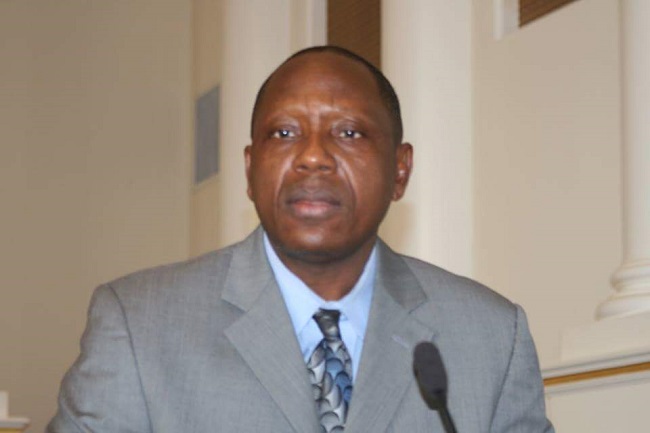Liberian media houses should merge – ALJA prexy

Mr Sandy says such mergers will promote media development
The National President of the Association of Liberian Journalists in the Americas (ALJA), Moses D. Sandy is proposing the merger of media institutions in Liberia with similar or identical editorial philosophies.
Mr. Sandy said such endeavor would help minimize the extreme poverty which continues to stall the professional growth and development of the Liberian press.
He said the proposed merger would also create avenues for the strengthening of the financial capacity of media institutions, recruitment and retention of qualified journalists and improvement in the living conditions of journalists.
Speaking recently when he delivered a paper on ALJA‘s vision for the Liberian media at the Diaspora Political Consultative Conference held in Philadelphia, Pennsylvania under the auspices of the Union of Liberian Associations in the Americas (ULAA), The ALJA National President said press freedom the world-over is not measured by the proliferation of substandard and inefficient media institutions but the content of news stories reported in the media.
Since the ascendency of the Ellen Johnson-Sirleaf administration to the political leadership of Liberia in January 2006, the country has witnessed an astronomical growth in media institutions and schools of communication.
In today’s Liberia, there are 69 radio stations. The radio stations comprise the state owned, Liberia Broadcasting System (LBS), commercial, religious, community, and those operated by schools of communication.
According to media reports, Liberia also, has more than 5 television stations and nearly 40 newspapers. Liberia reportedly has six degree granting schools of communication including the University of Liberia and Cuttington University College (CUC).
Despite the media pluralism, Mr. Sandy indicated, the local Liberian press persists to be saddled with issues of non-livable wages, lack of fringe benefits for journalists, destitution and poor logistical support and staffing. The average monthly salary for a reporter in Liberia is reportedly US $50.
He said most media institutions and journalists are barely surviving due to the nation’s limited media market. He noted most print and broadcast institutions often scramble for advertisements just to remain functional. The problem is further worsened by the lack of readership, especially in the print area.
In the wake of the problem, President Sandy observed advertisers and some selfish politicians most of the times determine and impose their own prices at the detriment of media institutions.
He said the Liberian press is also impacted by issues of brain drain and inaccessibility. He maintained the media is faced with the exodus of trained and experienced journalists, who are abandoning the profession in search of greener pasture in other disciplines.
Commenting on the print media, Mr. Sandy said newspapers in Liberia continue to struggle with challenges of poor circulation and irregular publications.
He noted several Liberian newspapers rarely appear on the newsstand due to the lack of funding. Reportedly less than 20 newspapers are published regularly in the country.
He said most of the newspapers are published and circulated only in Monrovia, the capital, and its environs due to the lack of monetary and logistical support for mass production and distribution throughout the country.
Touching on the broadcast media, the ALJA boss said most radio and TV stations in Liberia are plagued by the problem of intermittent broadcast hours and weak signals.
He said most stations are unable to sustain uninterrupted broadcast hours. He said the situation is furthered compounded by weak signals and poor broadcast coverage area. He noted the broadcast signals of some radio and TV stations can hardly travel beyond Monrovia and its environs.
Meanwhile, Mr. Sandy says the ALJA is determined to work in unison with the leadership of the Press Union of Liberia (PUL) and heads of media institutions in addressing journalists’ welfare and the consolidation of forces in the strengthening of Liberian journalism.
ALJA

